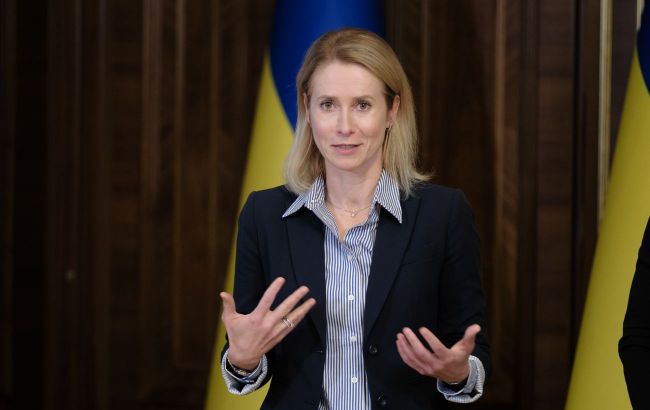EU approves 19th sanctions package against Russia
 Kaja Kallas (photo: Getty Images)
Kaja Kallas (photo: Getty Images)
The European Union has approved a new package of sanctions targeting Russia's shadow fleet and imports of liquefied natural gas, EU foreign policy chief Kaja Kallas said.
"We just adopted our 19th sanctions package. It targets Russian banks, crypto exchanges, entities in India and China, among others," she wrote.
According to her, the EU is restricting the movement of Russian diplomats to counter destabilization attempts.
"It is increasingly harder for Putin to fund this war," Kallas added.
As stated by the Danish EU presidency, "today is a good day for Europe and Ukraine."
The new restrictions will introduce new and comprehensive measures on oil and gas, the shadow fleet, and Russia's financial sector. This includes a ban on the import of Russian LNG and additional steps to prevent sanctions evasion.
Lengthy discussions
The decision was made after Slovakia lifted its objections to the package.
The sanctions package was approved following several weeks of negotiations among member states that could not agree on the details. The discussion of the new sanctions package lasted for several weeks. Austria, Hungary, and Slovakia blocked the decision, putting forward their own demands.
In the end, a compromise was reached, and the document received approval from all 27 EU member states.
What the 19th package includes
The package includes a ban on the import of liquefied natural gas (LNG) from Russia starting in January 2027 — one year earlier than previously planned. In addition, the restrictions will affect Russian banks, financial institutions in Central Asia, and several cryptocurrency exchanges that help Russia evade sanctions.
The new package also includes trade restrictions against Chinese and Indian companies that have helped Russia circumvent sanctions.
Furthermore, the European Union is introducing a ban on the export of goods worth over 40 billion euros that are used in Russia's military industry, including minerals, ceramics, and rubber.
In addition, more than 100 oil tankers involved in the illegal trade of Russian oil have been added to the EU's blocklist. The total number of vessels under sanctions will reach about 550.
US sanctions
The EU decision was made shortly after the Trump administration imposed sanctions on two of Russia's largest oil companies. These measures aim to limit Moscow's access to international energy markets and reduce revenues from oil and gas exports.
The new EU sanctions package is part of the broader Western strategy to increase pressure on the Kremlin and support Ukraine amid the ongoing war.

